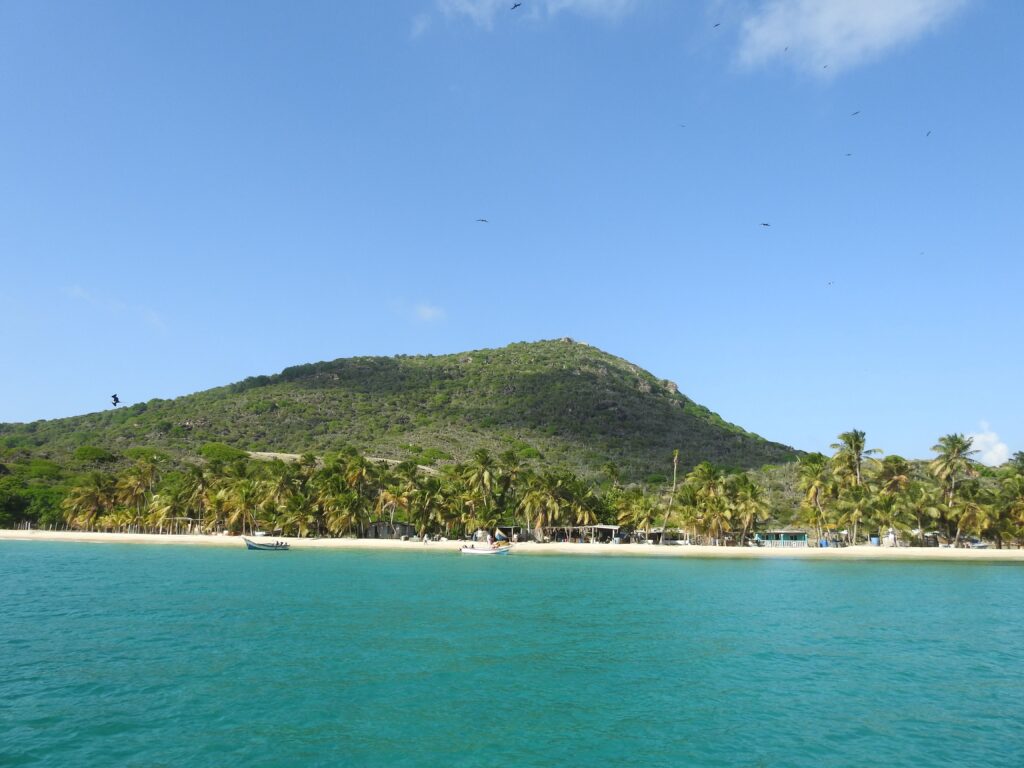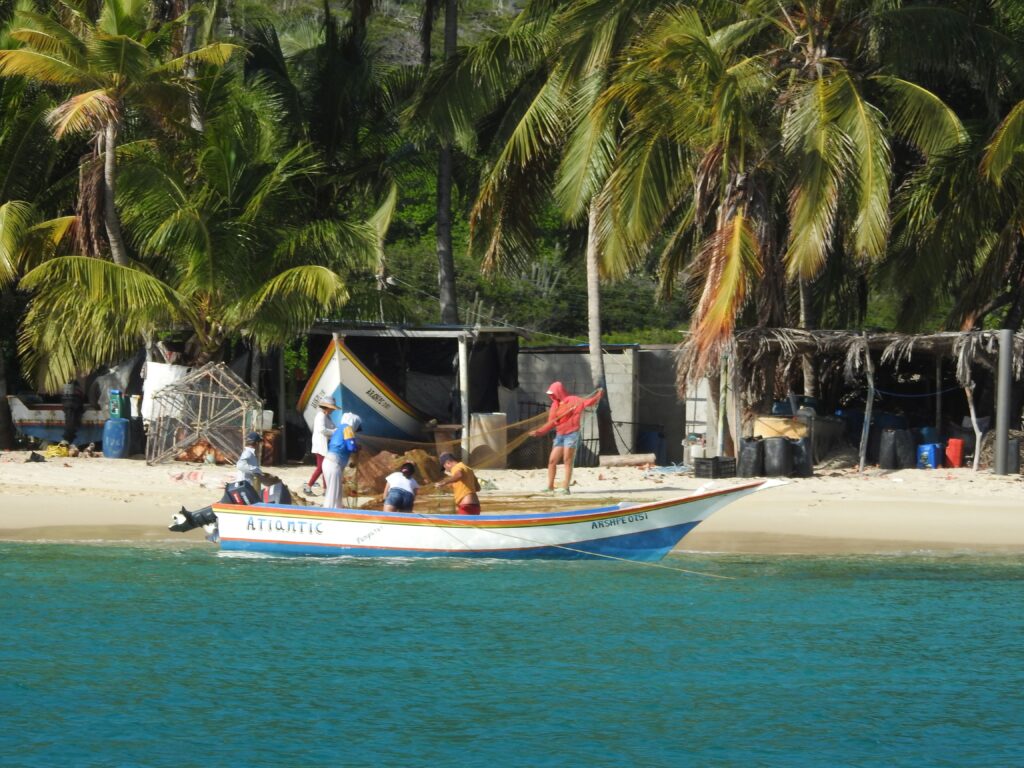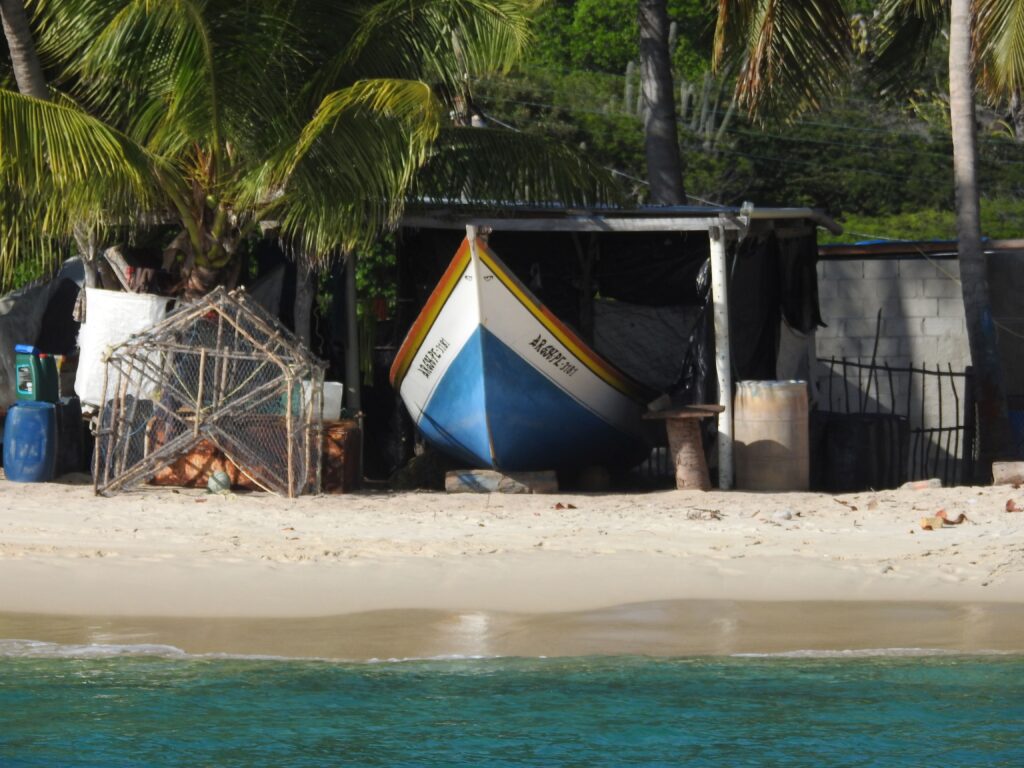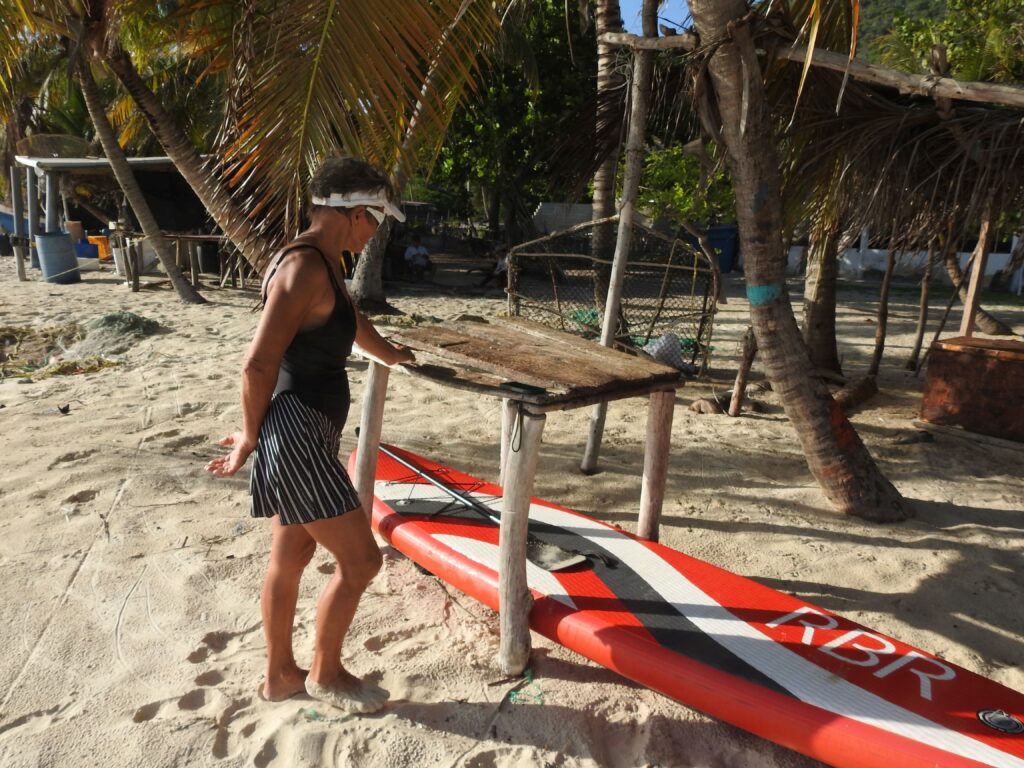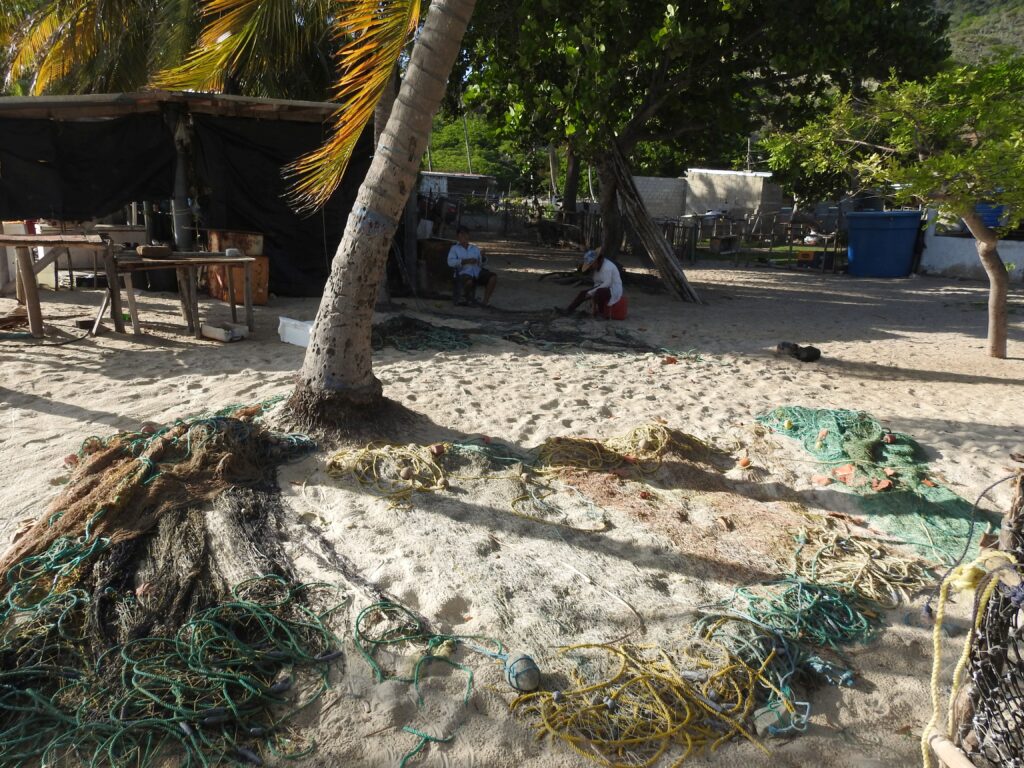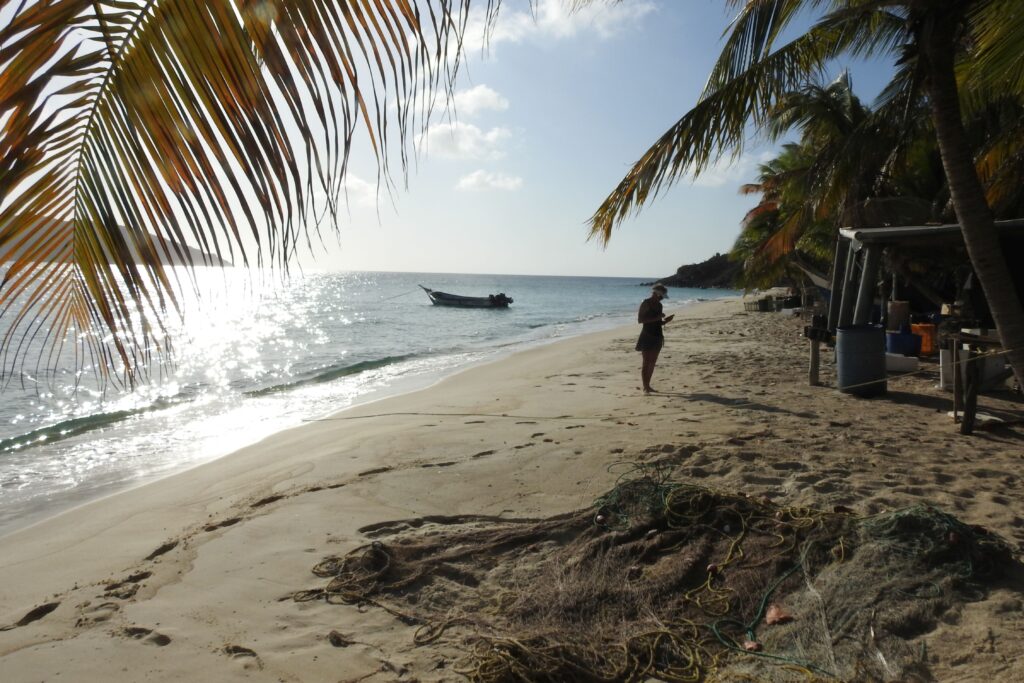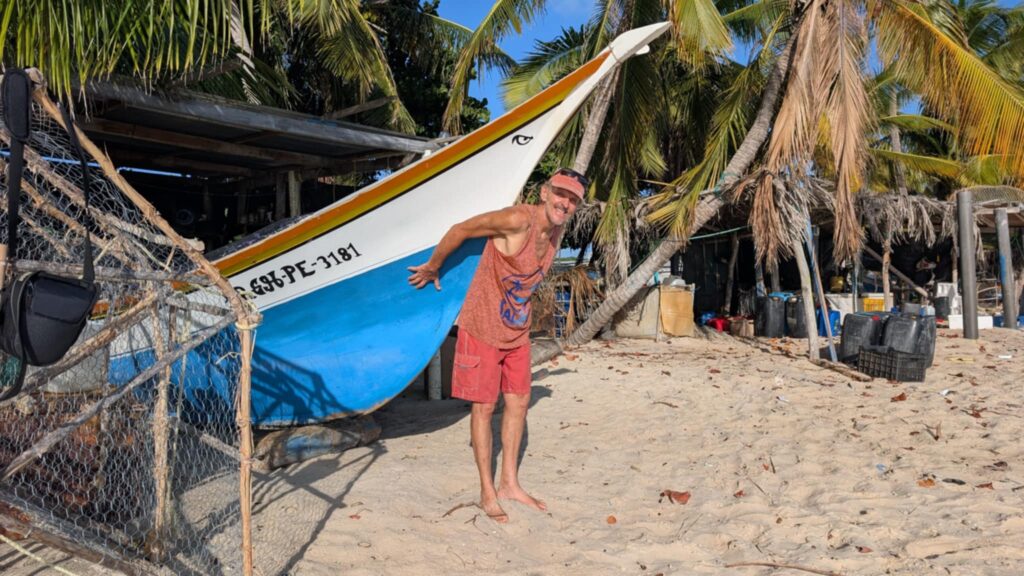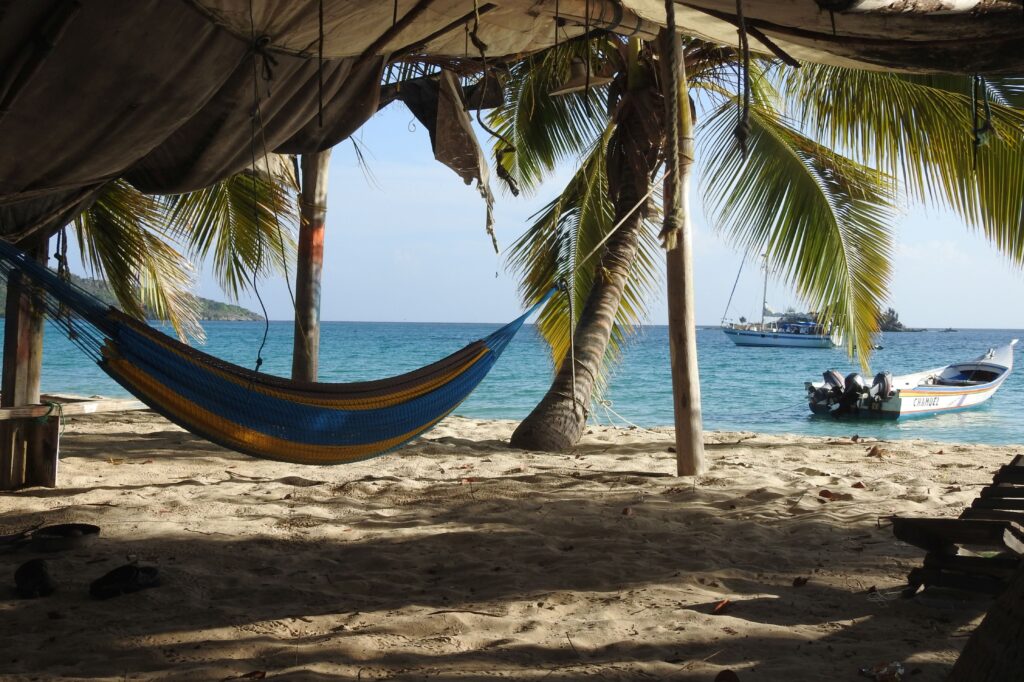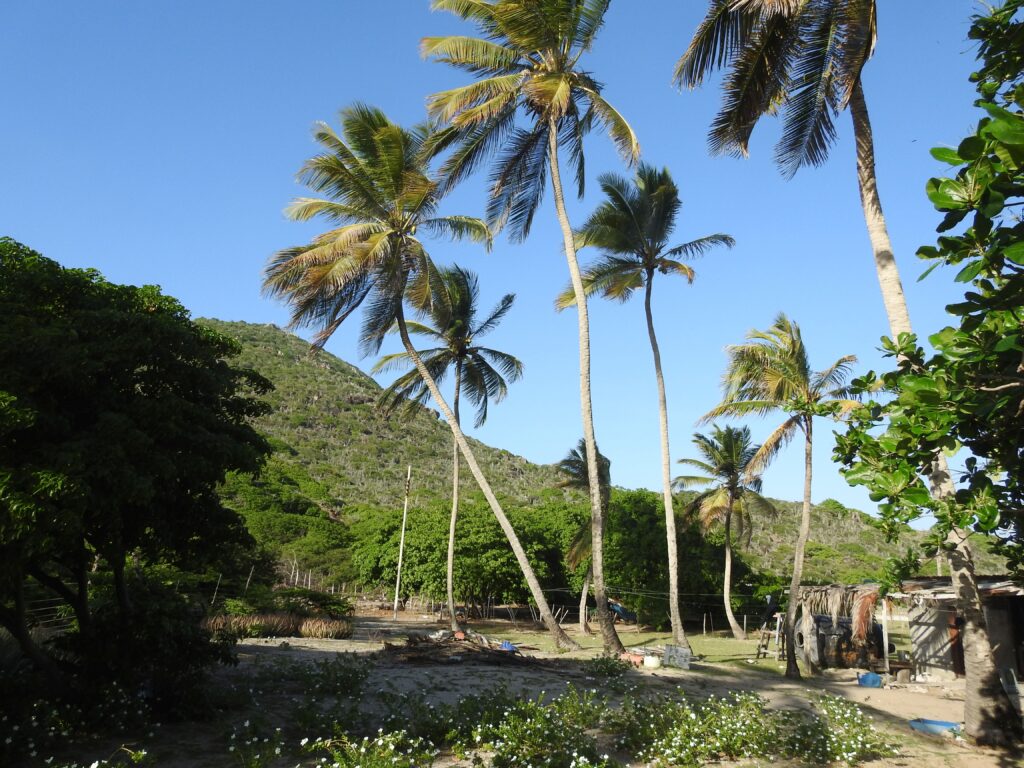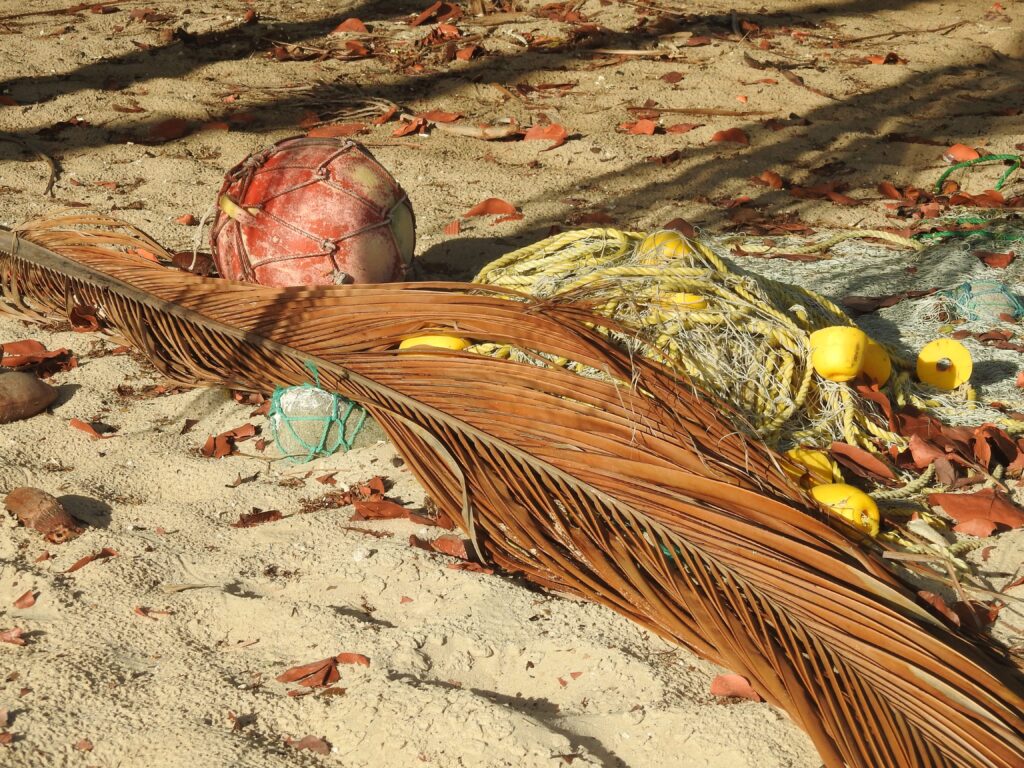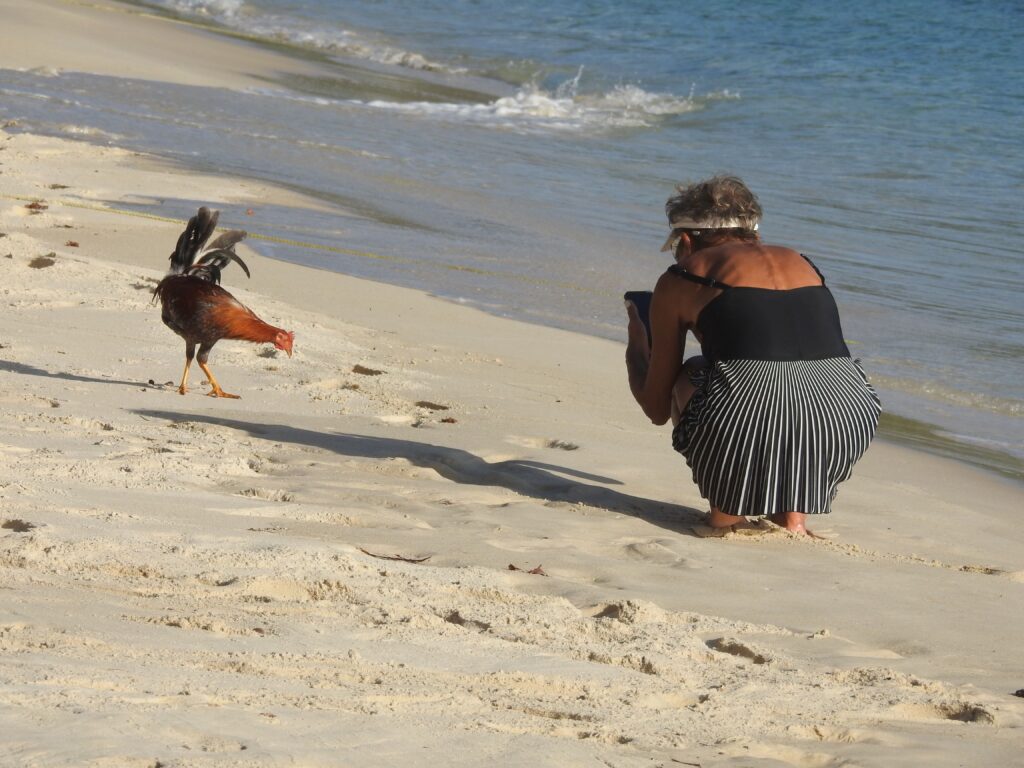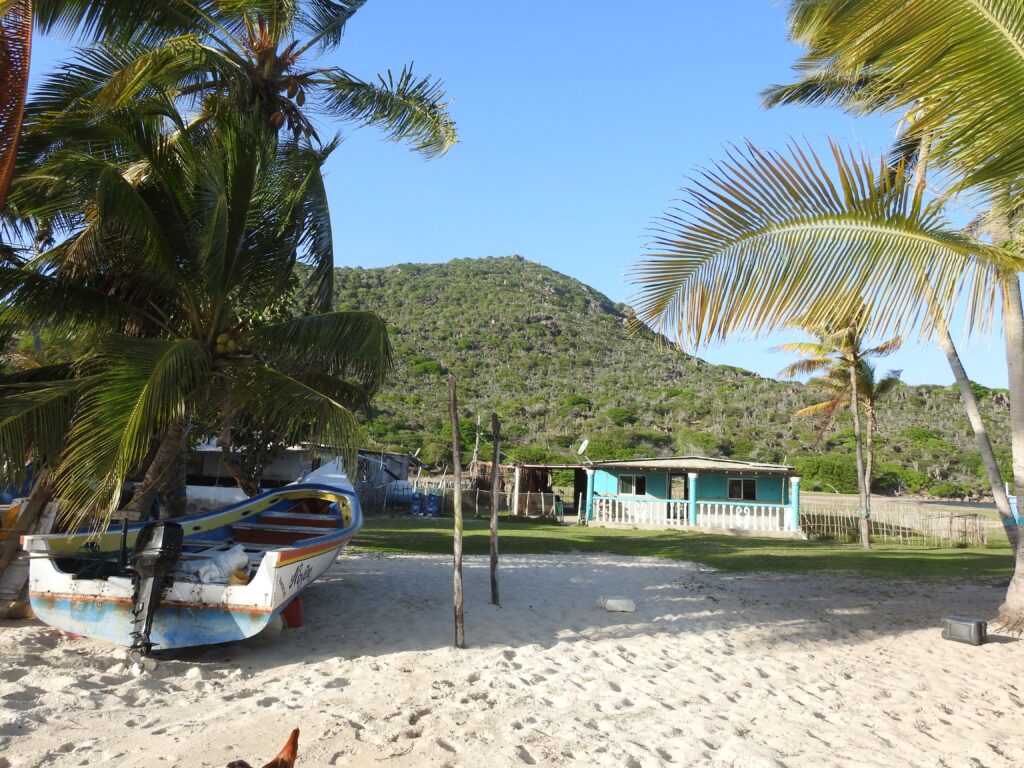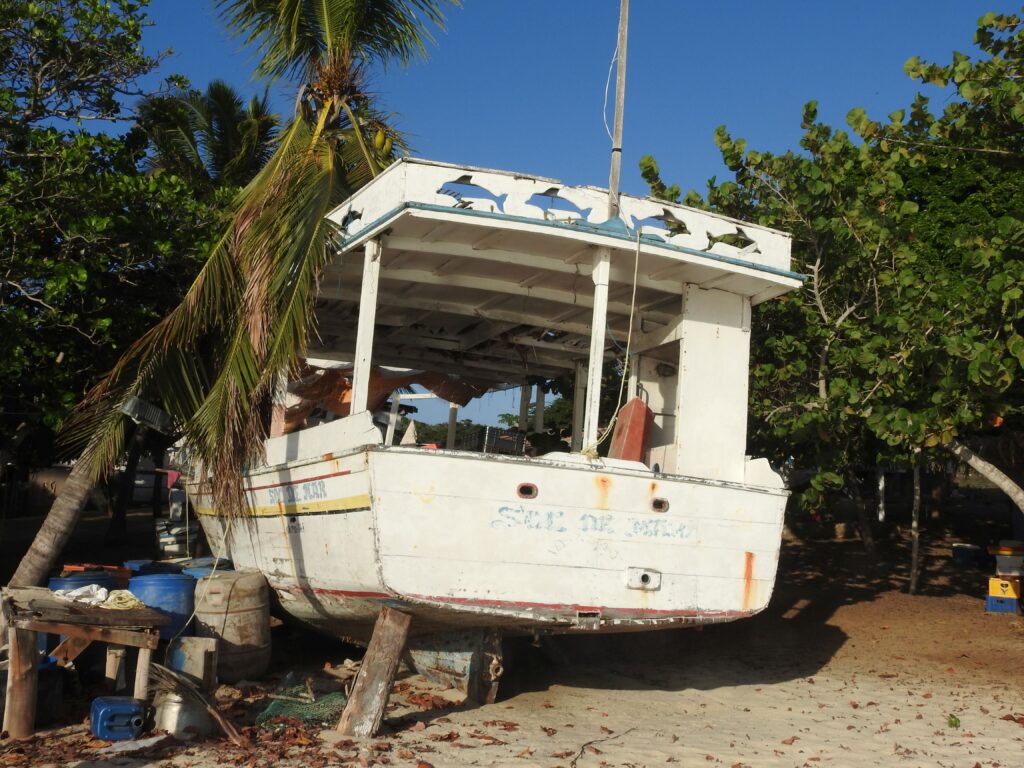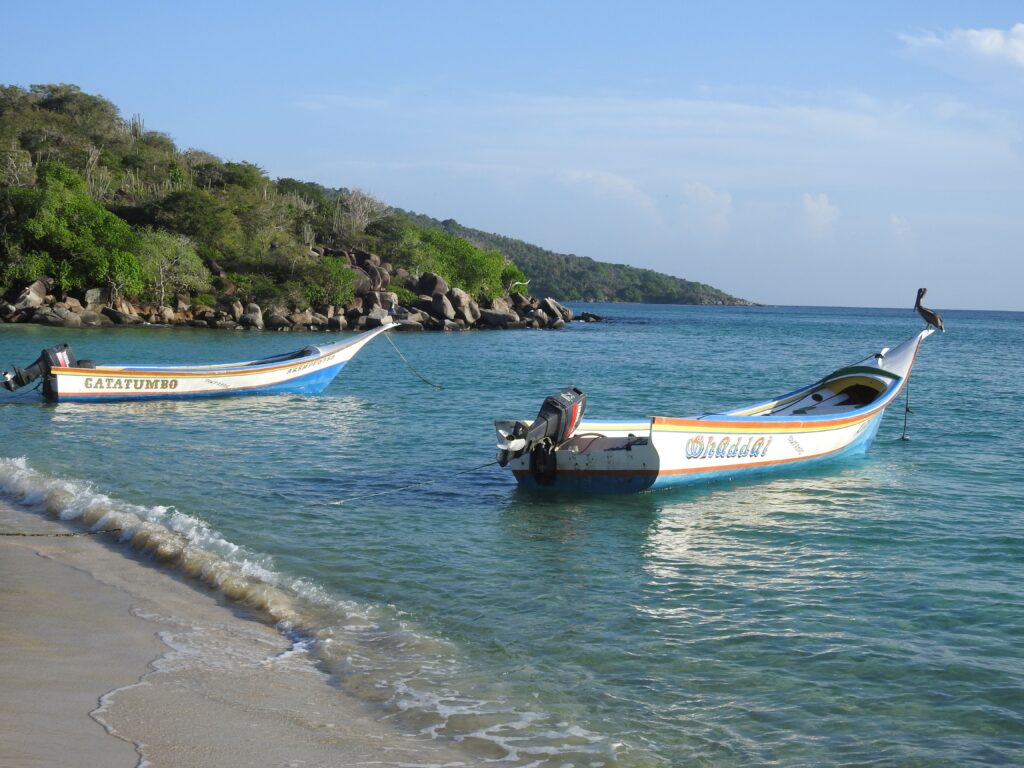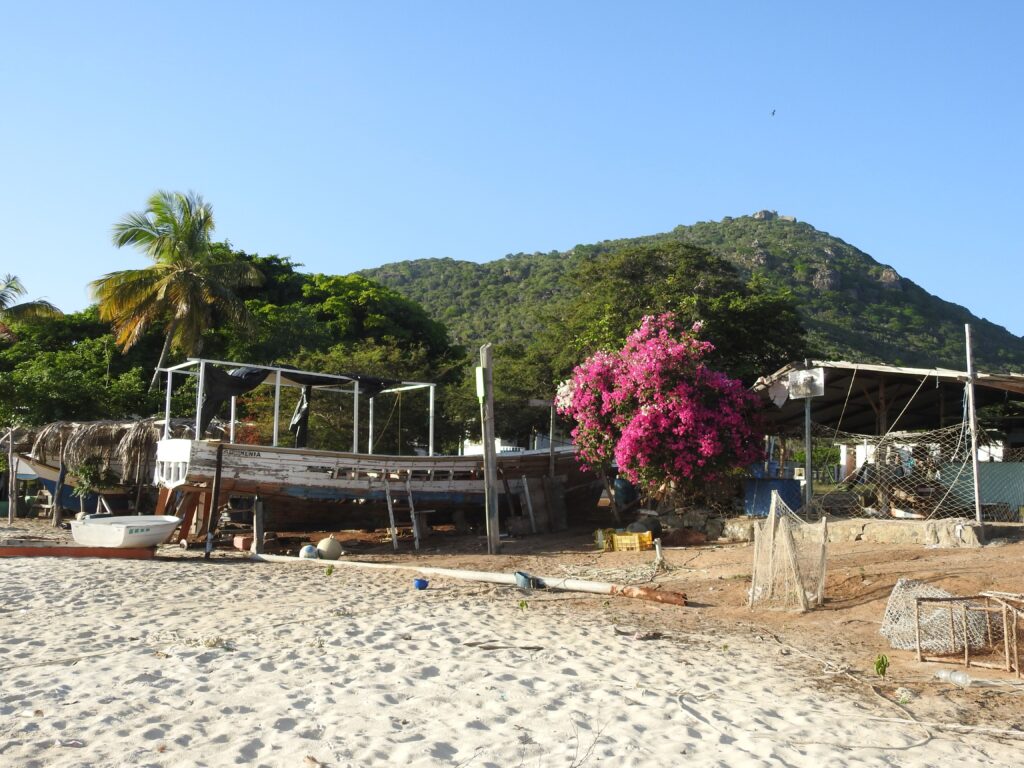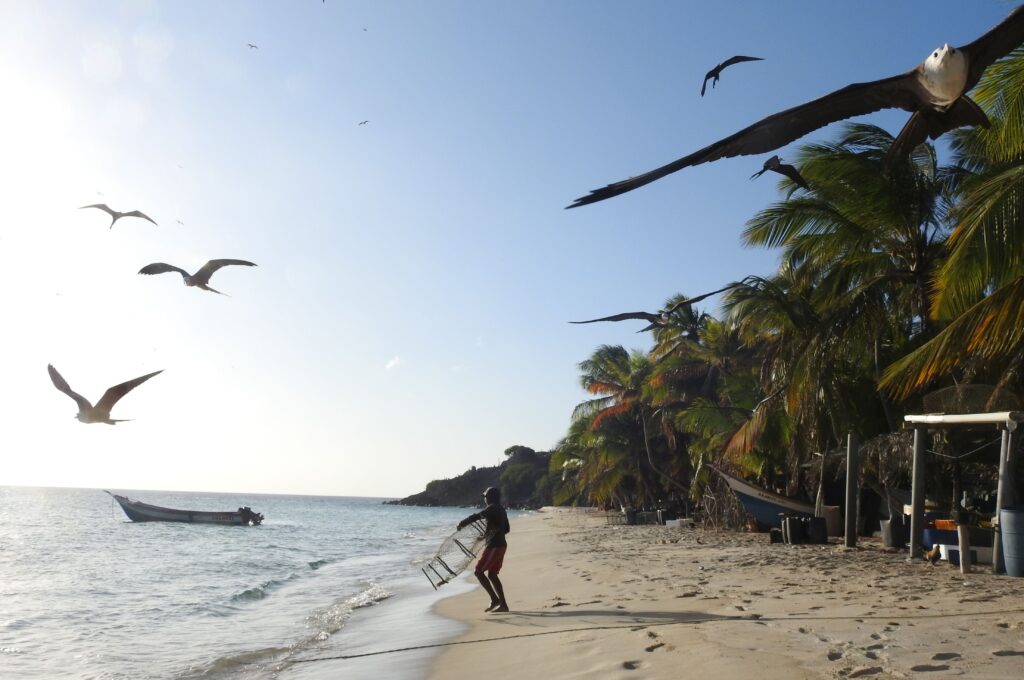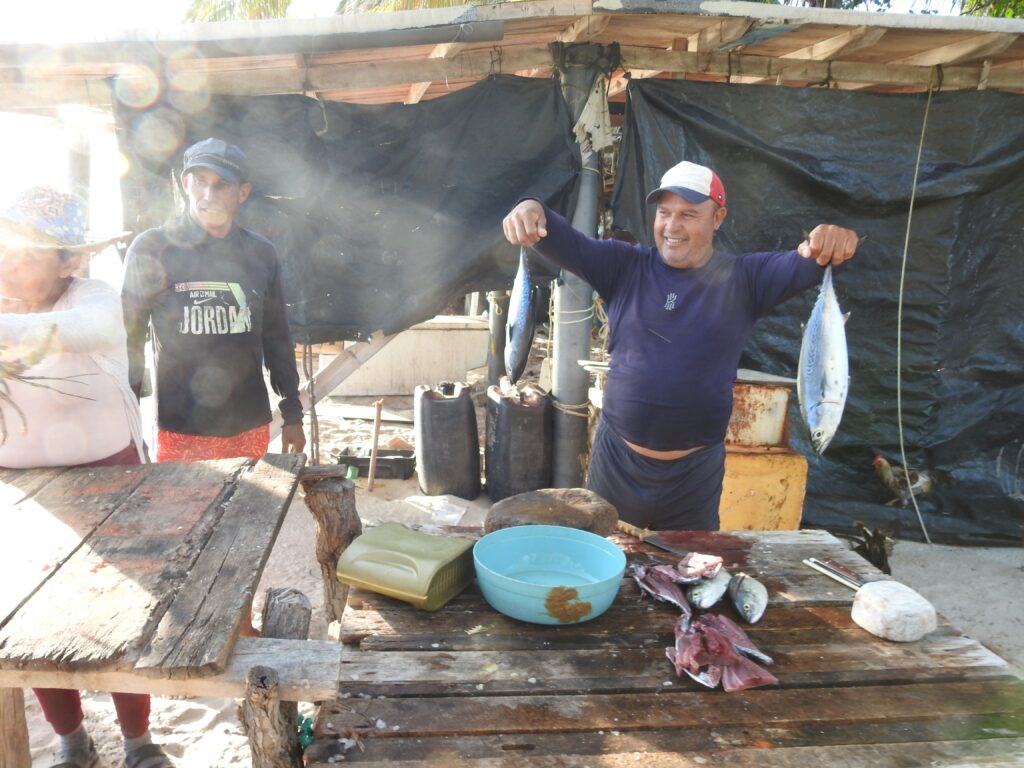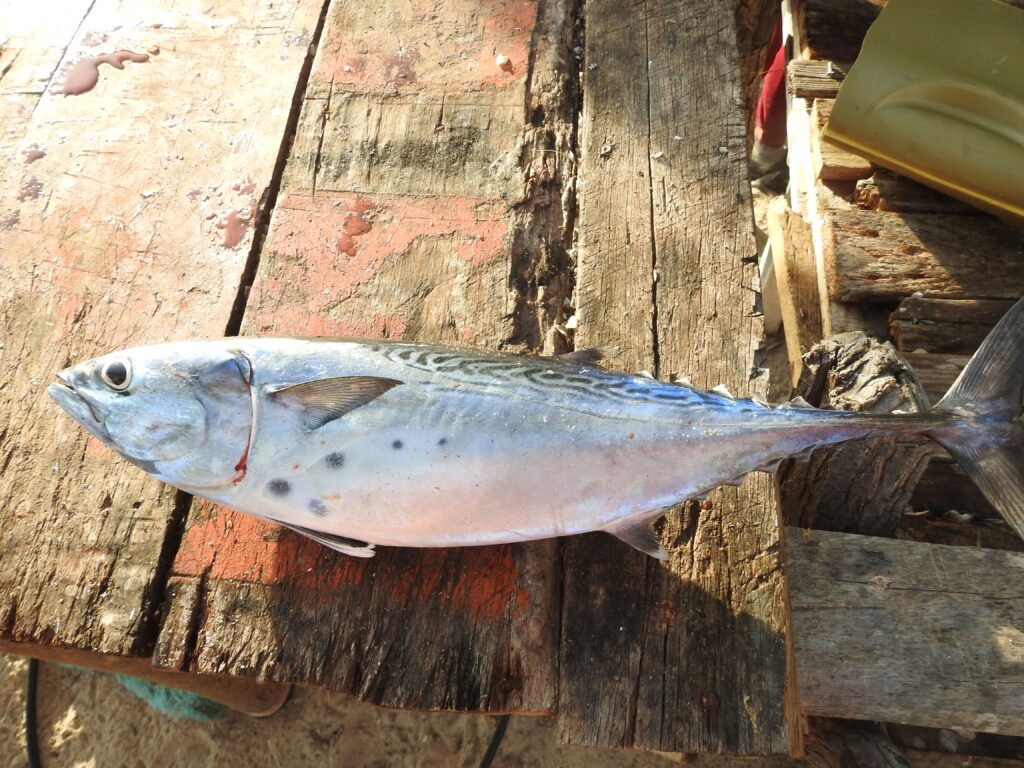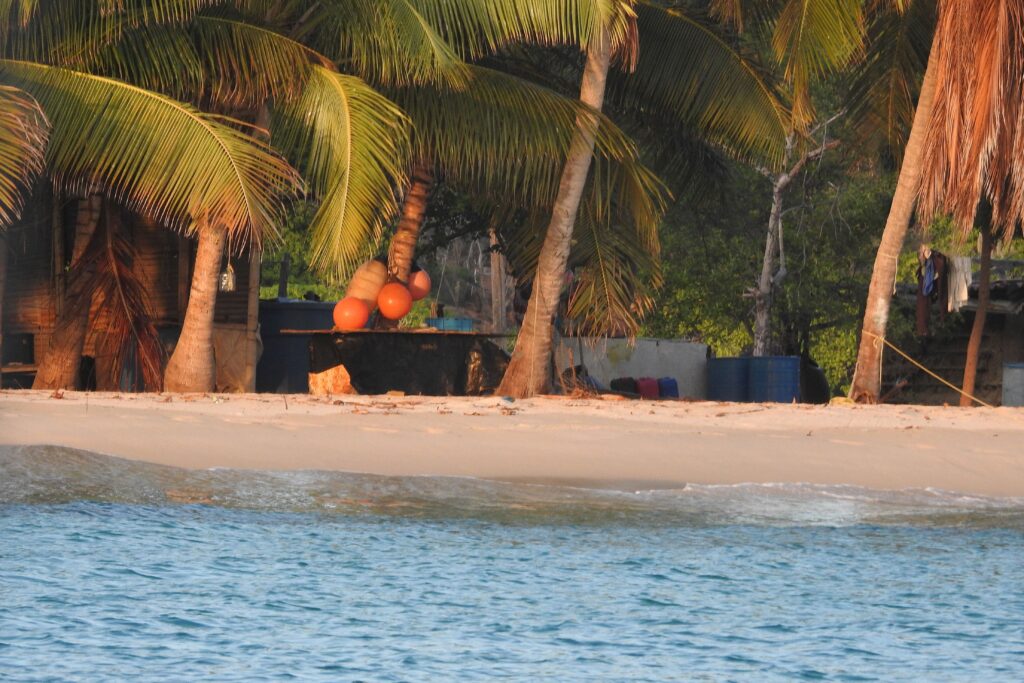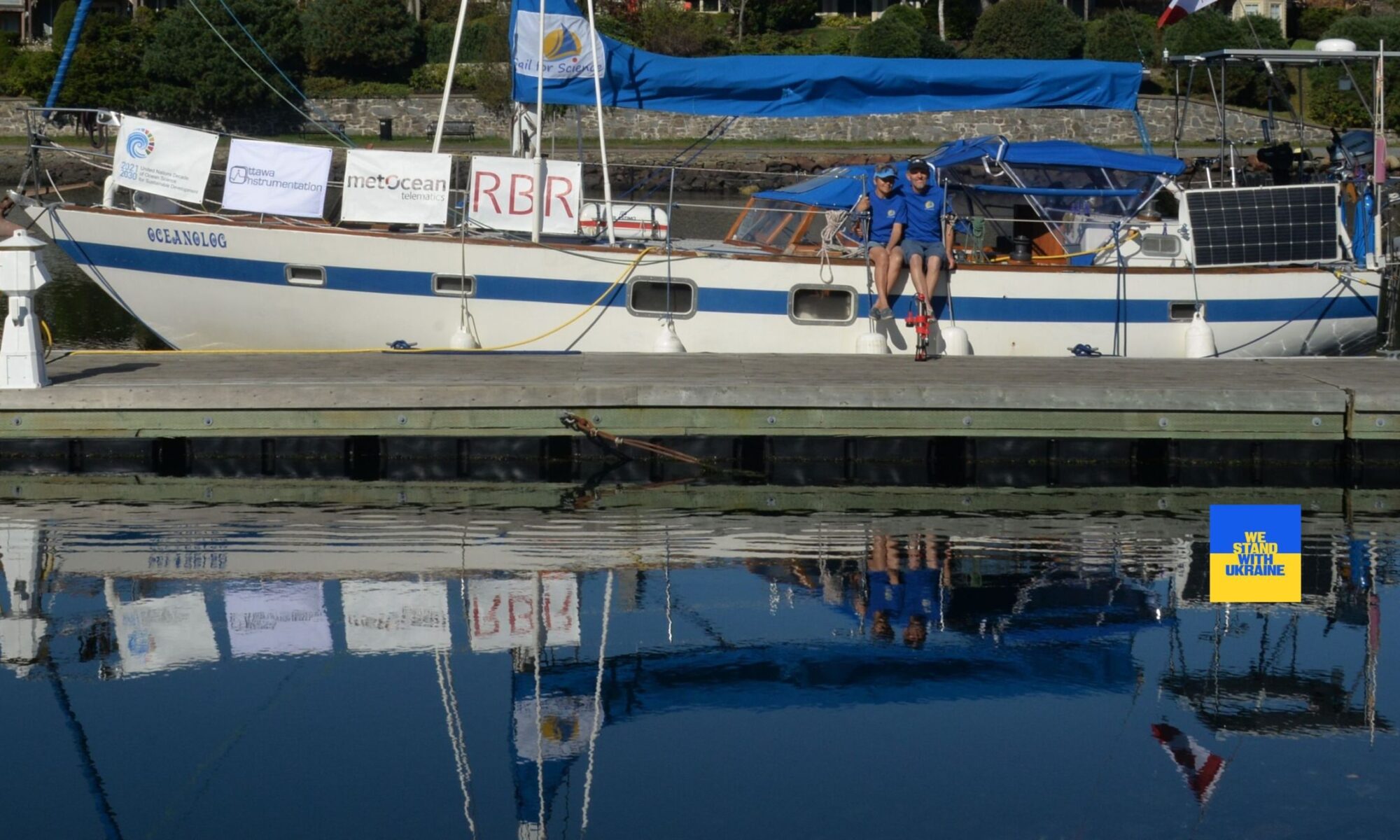On the second day of our stay on the beautiful island Grand Los Testigos, we decided to sail over to the neighboring North Observation Bay, home to a small fishing village. We were eager to meet Venezuelan fishermen on their native land, having previously lived near them in Coral Cove Marina, where they generously shared their fresh catch with us.
We anchored right in front of the village, which boasted a picturesque beach. The village was quiet, likely because it was the weekend, and many of the fishermen had traveled to the mainland. One boat, however, was bustling with activity—women were preparing nets, and men were equipping the boat for fishing.
Launching our SUP, we paddled to shore like primitive seafarers on a pirogue—or maybe the reverse. On the beach, we found an elderly couple sitting in their yard among the smoky haze of a fire meant to ward off mosquitoes. They were calmly mending nets. Our limited Spanish got us through a polite greeting, and though we couldn’t converse much, the simplicity of the scene left an impression.
We wandered along the shore, adding to our collection of photo memories. When we reached the far end of the beach, a commotion drew us back to where we had first arrived. A cacophony of frigatebirds circled above an incoming boat, their cries signaling an exciting find. As we hurried back, we discovered a feeding frenzy as the birds snatched discarded fish scraps from the water.
A friendly woman approached us, holding a freshly caught and still very much alive spiny lobster. She offered it to us with the words: “No dinero” (No money). This put us in a tough spot—our unspoken rule is to avoid killing beautiful sea creatures. Years ago, during a trip to Nova Scotia in 2005, we’d bought a live lobster for a birthday dinner, only to end up releasing it into the ocean. Since then, we’ve avoided live lobsters, spiny lobsters, crabs, and even fish when possible. But here, faced with a generous gift from the heart of the fishing village, we had to make a choice.
Iryna, ever the diplomat, asked if we could trade the lobster for a dead fish instead. The villagers were happy to oblige and offered us a large tuna, which they called Bonito. It was more than enough for three delicious dinners. Thank you, kind residents of the fishing village!
As we prepared to leave, a woman approached us with a simple but heartfelt request—did we have Wi-Fi on board? Her daughter needed to get in touch. We gladly shared our password, and it was heartwarming to see the connection bring joy.
Whether it’s fish or the Internet, sharing what you have is a beautiful rule of neighborliness—and one we’re happy to live by.
